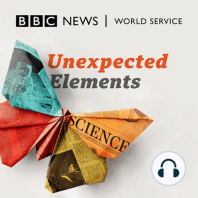67 min listen
Embryoids from stem cells
ratings:
Length:
60 minutes
Released:
Sep 15, 2019
Format:
Podcast episode
Description
Scientists know very little about the first few days of the life of a human embryo, once it's been implanted in the womb. Yet this is when the majority of pregnancies fail. Professor Magdalena Zernika-Goetz at Cambridge University is a leader in the field of making 'model embryos' in both mice and humans. Model embryos until now have been grown in the lab from donated fertilised eggs, but these are hard to come by and governed by strict laws and ethical guidelines. Now researchers in the University of Michigan have used human pluripotent stem cell lines (originally isolated from embryos, but kept and nurtured as clumps of dividing cells in petri-dishes for many years) to make a model embryo that has shown signs of development and organisation in the crucial 7-10 day window. We discuss how helpful these will be to understanding crucial early stage pregnancies and as a tool to test drugs, treatments and disease processes. The ethical side of growing human embryos from stem cells is addressed by Stanford University ethicist Professor Hank Greely.
Astronomers have detected water vapour in the atmosphere of a planet called K2-18b orbiting within the habitable zone of a distant star. The lead scientist, Professor Giovanna Tinetti of University College London, talks about the discovery and what she hopes to explore when a satellite telescope called ARIEL is launched by ESA in around a decade.
The World Health Organization ranks migraines as the second most disabling neurological disorder in the world and in people under the age of 50, it is the single most disabling medical condition. With stats like that, it’s no wonder that so many listeners have got in touch wanting help with their headaches. Peter from Germany askes what happens in his brain when he’s got a migraine, whilst Nika from Germany has found that changing lifestyle has dramatically reduced hers but she’s not sure why. What’s the link between diet, exercise and migraines, Nika wonders? Meanwhile, Judy from USA wants to know if there’s a cure, as her son gets chronic migraines and she wants to know what the future looks like for him. We investigate some of the latest research in headache and migraine research to find some answers.
(Photo: A set of five embryo-like structures in a microfluidic device developed in the lab of Jianping Fu. Image credit: Fu Lab, Michigan Engineering)
Astronomers have detected water vapour in the atmosphere of a planet called K2-18b orbiting within the habitable zone of a distant star. The lead scientist, Professor Giovanna Tinetti of University College London, talks about the discovery and what she hopes to explore when a satellite telescope called ARIEL is launched by ESA in around a decade.
The World Health Organization ranks migraines as the second most disabling neurological disorder in the world and in people under the age of 50, it is the single most disabling medical condition. With stats like that, it’s no wonder that so many listeners have got in touch wanting help with their headaches. Peter from Germany askes what happens in his brain when he’s got a migraine, whilst Nika from Germany has found that changing lifestyle has dramatically reduced hers but she’s not sure why. What’s the link between diet, exercise and migraines, Nika wonders? Meanwhile, Judy from USA wants to know if there’s a cure, as her son gets chronic migraines and she wants to know what the future looks like for him. We investigate some of the latest research in headache and migraine research to find some answers.
(Photo: A set of five embryo-like structures in a microfluidic device developed in the lab of Jianping Fu. Image credit: Fu Lab, Michigan Engineering)
Released:
Sep 15, 2019
Format:
Podcast episode
Titles in the series (100)
Understanding the Wuhan coronavirus: Analysis of the impact of the new virus. by Unexpected Elements
